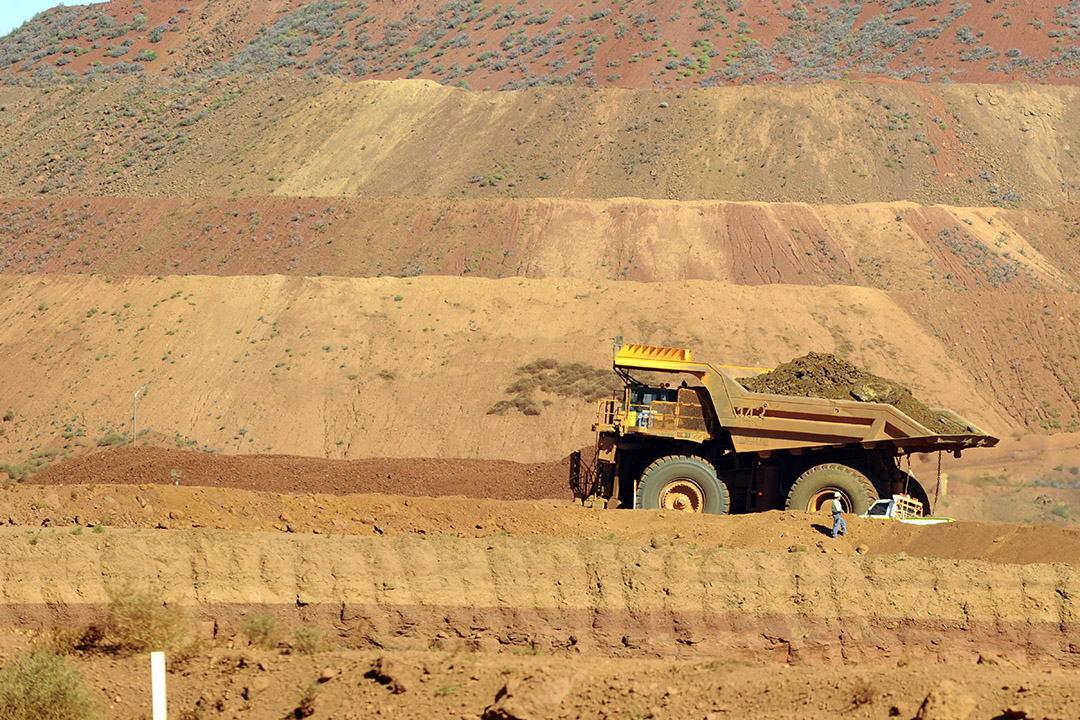

Eyebrows are raised on markets today as China has told its steelmakers to stop buying BHP's iron ore. Let's explain what it means for your portfolio.
China has ordered its steelmakers and major traders to halt new purchases of iron ore from BHP, as first reported by Bloomberg.
The order, reportedly issued to China Mineral Resources Group (CMRG), came after price talks between Chinese buyers and BHP stalled. The ban covers all new US dollar contracts, even for shipments already on their way from Australia.
Over the past decade, China has relied heavily on Australia for iron ore, but that dependence is starting to soften as big customers like China start to look elsewhere for better value. Plus, the demand for steel in China isn’t as strong as it used to be overall.
Prime Minister Anthony Albanese described China’s decision as “disappointing” and said he hopes the ban is only a short-term measure.
“I am concerned about that and what we want to make sure is that markets operate properly. Of course, we have seen those issues in the past. I want to see Australian iron ore to be able to be exported to China without hindrance. That is important, it makes a major contribution to China’s economy but also to Australia’s.”
BHP shares opened at $42.63 but fell to $41.78 within the first hour of trading as investors reacted to the uncertainty. The stock is appearing to bounce its way through the session, however, as the ASX200 puts on a healthy 200 points in early trade.
Iron ore prices also jumped on the news. Futures in Singapore rose 1.8% to $105.05 a tonne, reflecting fears that a ban could squeeze supply or spark broader tensions.
Iron ore is the backbone of Australia’s export economy, and China is its biggest customer by far. If the ban drags on, the impact could be felt well beyond BHP’s share price. Lower export volumes risk hitting the Australian dollar, shrinking government tax revenues, and putting jobs at risk in mining regions.
For punters who rely on blue-chip stocks for steady dividends and long-term growth, but a sustained iron ore ban could dent both share prices and payouts.
Analysts and policymakers will be watching closely for any sign that negotiations between BHP and Chinese buyers might restart. There’s also the possibility that China could extend restrictions to other Australian miners, putting even more pressure on the sector. Meanwhile, markets will keep a close eye on iron ore prices, which could stay volatile if the uncertainty continues.
For now, BHP (and the wider economy) faces a wait-and-see situation. The hope in Canberra is that cooler heads will prevail, talks will resume, and iron ore exports can flow freely again. Until then, the risk of further shocks to the market remains on the table. And we all know how the market feels about uncertainty.
It's widely being reported that China is likely using this "ban" - which still isn't officially confirmed, for what it's worth - as an aggressive negotiation tactic to get what it wants.
Here's a back-of-the-napkin analysis from friend of Switzer and broker-whisperer, Rudi Filapek-Vandyck who wrote on Twitter:
RBC Capital on $BHP: "While headlines read negative, we view this as a neutral event. We view this “ban” as more of a negotiating tactic, most likely an effort to secure lower long-term prices. "On government instructions steel mills could try to offset BHP volumes via Fortescue, RIO, Vale, domestic ores, or stockpiles, but in aggregate it would be at higher cost and efficiency loss and this would be at the margin (competitors could currently only absorb a very small portion of BHP's volumes).
"The ban would likely increase pricing power of other competitors (Vale, Rio Tinto, Fortescue), as they know steel mills are desperate for feed. Iron ore prices are already elevated (+$100/t) as the market is tight (despite seasonally weak Chinese construction demand), which would likely see competitor products trade at a premium (particularly for Vale and Rio to offset BHP high-grade blends).
"Ultimately, if prolonged, the ban risks squeezing steel margins or forcing selective output cuts (& higher steel prices with ripple effects into construction costs, autos and infra), but China cannot realistically walk away from BHP supply altogether. 55-65% of BHP's iron ore sales are to China (RBCe 290Mt in FY26), this equates to roughly 160-190Mt of iron ore to China (~16% of Chinese imports). "This would suggest 11% of China's steel output would be at risk (or 110-115Mt). Hence, we view BHP's iron ore supply as structurally irreplaceable."